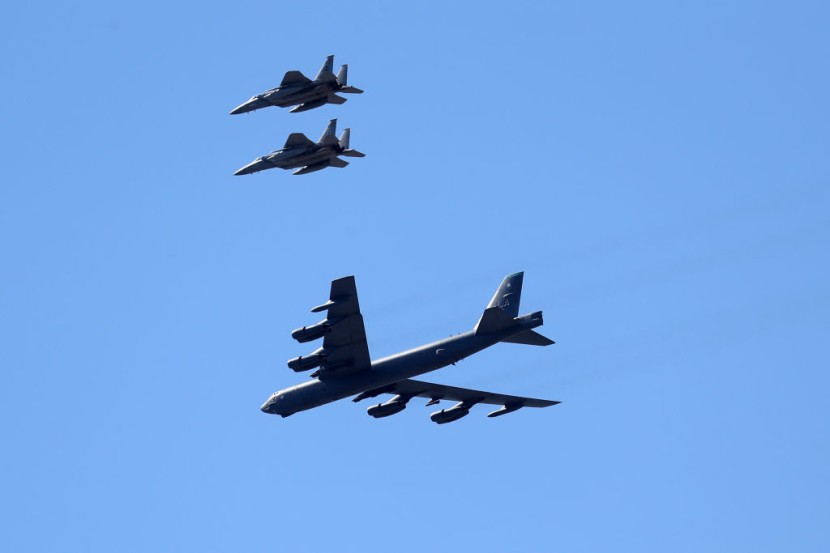
China has expressed concern that the deployment of US B-52 bombers to the Northern Territory could "start an arms race" and worsen regional tensions.
The government of Alba has reached an agreement with the US to enlarge Tindal Royal Australian Airforce Base to accommodate nuclear-capable bombers.
China Expresses Concern Over B-52 Bombers
The B-52 bomber would go via the Top End as part of a regular rotation of American military and air force assets. Beijing, however, reacted angrily to reports of growing military power in Australia amid already heightened regional tensions.
Zhao Lijian, a spokesman for China's foreign ministry, issued repeated warnings for regional stability and asked the US and Australia to abandon a "outdated Cold War zero-sum mentality."
Madeleine King, the minister for resources and northern Australia, rejected any concerns regarding China and asserted that Australia "always acts with its own interests at the center of its thinking."
Per Sky News, the B-52 bomber is a large, long-range bomber with the potential of carrying "nuclear or precision guided conventional weapons" with global navigation.
The past administration started discussions with Washington to increase the US air force's deployment in Australia. During the Australia-US ministerial meetings in 2021, the two nations decided to improve their cooperation by rotating the deployment of "all sorts" of US aircraft.
Peter Dutton, the leader of the opposition, declared that improving Australia's defense capabilities in the Northern Territory and its military cooperation with the US and allies were "absolutely necessary."
Critics in Australia also cautioned that the action would involve their nation in a battle between China and the US in the future. The Australian prime minister, Anthony Albanese, seemed to downplay the information by stating that Australia and the US discussed defense alliances "from time to time."
Albanese noted at a press conference that "there are trips to Australia of course, including in Darwin where of course, on a rotating basis, US Marines are stationed," Telegraph via MSN reported.
US B-52 Bombers
According to Becca Wasser, senior fellow at the Washington, DC-based Center for a New American Security, deploying the B-52 bombers to Australia will serve as a message to Beijing as worries about an attack on Taiwan rise.
This year, the US deployed four B-52 bombers to its Andersen Air Force base in Guam, a US island territory in the Western Pacific. The ability to dispatch US bombers to Australia "sends a powerful message to enemies about our capacity to project deadly air power," according to the US Air Force.
When asked about the US nuclear bombers based in Australia, Zhao Lijian stressed that military and security cooperation between nations "should not target any third parties or hurt third parties' interests."
Dutton said that while in government, he had explored rotating every component of the US Air Force through sparsely populated northern Australia with US officials. The US Defense Department intends to construct an aircraft parking apron at Tindal to house six B-52 bombers, according to the US tender papers.
Per Washington Post, comprehensive plans for a maintenance facility, jet fuel storage tanks, and an ammunition bunker as well as a "squadron operations complicated" for the US Force at Tindal were also there. The US Defense Department stated that "the RAAF's capability to host USAF bombers, as well as train alongside them, illustrates how integrated our two air forces are."
@YouTube








